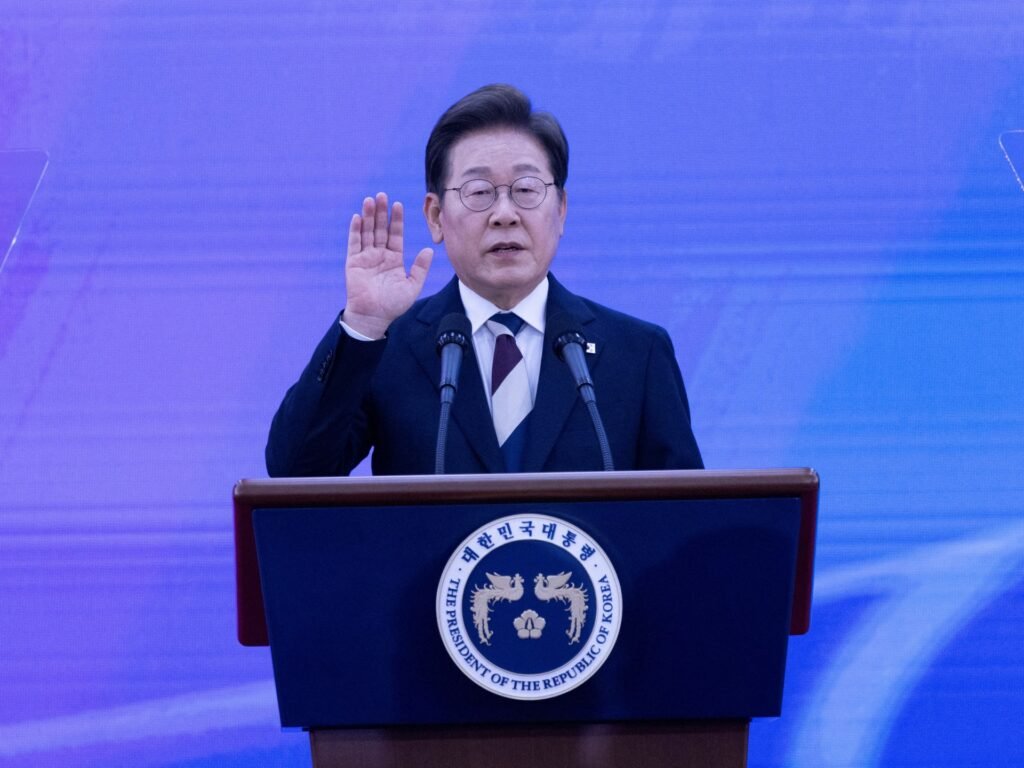President Lee Jae-myung has committed to addressing economic issues and enhancing relations with North Korea following his inauguration.
South Korea’s newly inaugurated President Lee Jae-myung has vowed to “heal wounds” after a period of political and economic instability in the nation. In his inaugural speech, he expressed a desire to reopen communication with North Korea following his decisive electoral victory.
Lee, a member of the liberal Democratic Party of Korea, takes over from former President Yoon Suk-yeol, who caused a national crisis last year by temporarily imposing martial law due to concerns about anti-state activities and North Korean infiltration.
After officially taking the oath of office at parliament on Wednesday, Lee committed to steering South Korea away from the recent turbulence and political unrest.
Compounding South Korea’s challenges is rising criticism from the United States, a crucial economic and security partner, amid increasing trade protectionism under President Donald Trump.
In his address, Lee declared, “The government under my leadership will prioritize a pragmatic, pro-market approach.”
He emphasized efforts to improve relations with Pyongyang, committing to “deter North Korean nuclear and military threats while fostering communication and cooperation to achieve peace on the Korean Peninsula.”
“We will mend the rifts caused by division and war, paving the way for a future marked by peace and prosperity,” he stated.
“Peace, regardless of its challenges, is preferable to war,” he noted.
Lee also cautioned that “growing protectionism and changes to supply chains” threaten South Korea’s export-driven economy and pledged to address the cost of living issues facing middle- and low-income families.
The interim government of South Korea, which operated after Yoon’s removal, struggled to negotiate a trade deal with the Trump administration to reduce proposed tariffs on imports from the country.
Currently, Trump’s 25 percent “Liberation Day” tariffs on South Korea – aimed to adjust the US trade deficit – are on hold while discussions continue, although South Korean exporters have faced a new 50 percent tariff on steel and aluminum products.
Lee triumphed in this week’s snap election with 49.4 percent of the vote, significantly surpassing conservative candidate Kim Moon-soo, as voter turnout reached its highest level since 1997 in South Korea.

